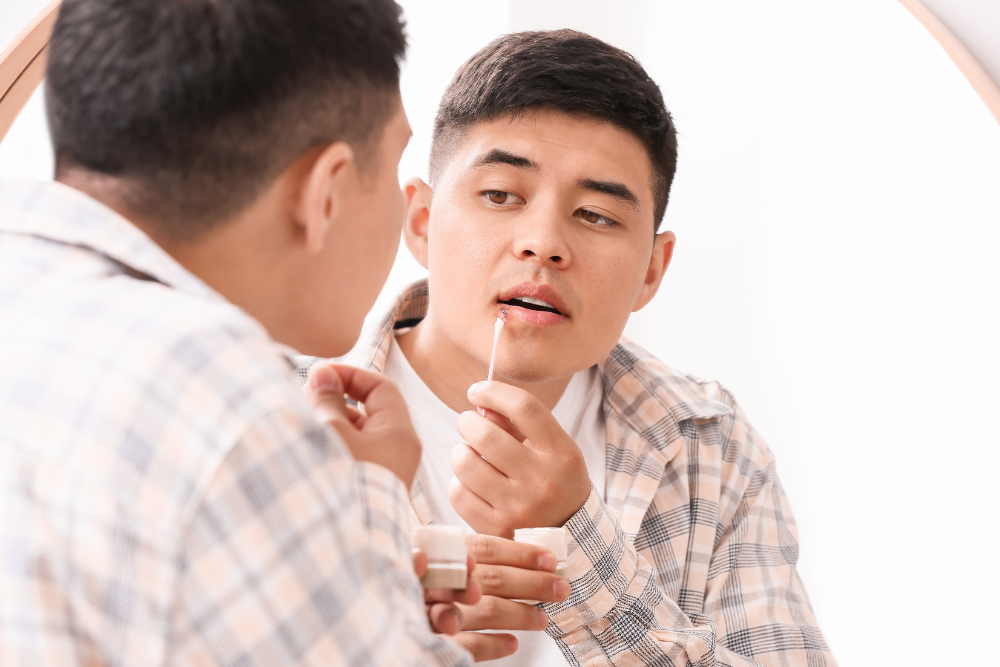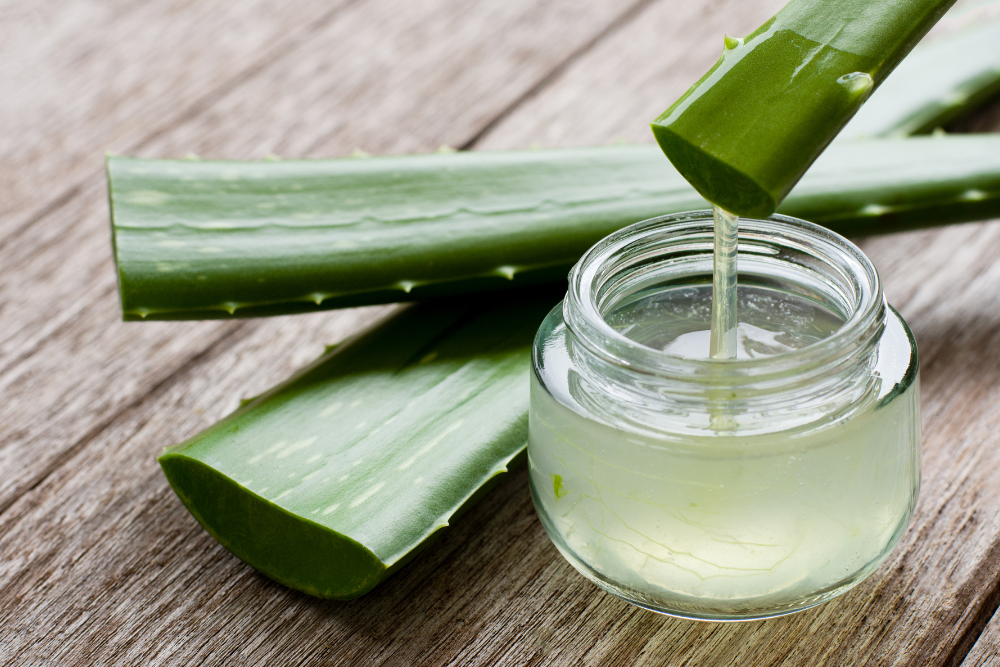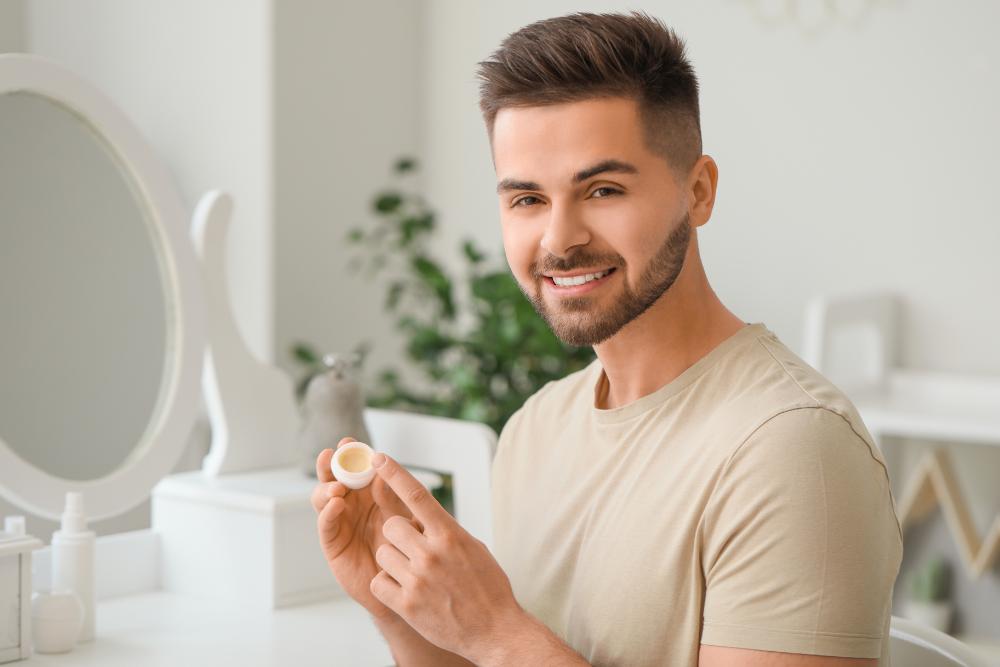Ever wondered how you can get herpes, or herpes simplex virus, as it’s also known? We’re here to make it simple. This article breaks down the basics, from how do you get herpes to recognising herpes symptoms, and more. It’s your go-to guide for navigating the facts about cold sore and genital herpes transmission and tips to keep yourself safe. Let’s explore the fundamentals of the herpes simplex virus and, more importantly, discover simple ways to prevent recurrent herpes.
Effective Preventive Measures
While grappling with the question of how herpes spreads, it’s equally important to focus on preventive measures that can significantly reduce the risk of transmission. Taking proactive steps can empower you to safeguard your intimate health. Here are some simple and effective things you can do to lower the chances of getting herpes:
Safe Sexual Practices
Implementing safe practices during intimate encounters (vaginal, anal, and oral sex) is paramount. Consistent and correct use of barrier methods, such as condoms, can serve as a protective shield against herpes transmission.
Open Communication
Establishing open and honest communication with your partner is key. Discussing sexual health, testing, and any potential risks can help create a trusting environment, allowing both partners to make informed decisions.
Regular STI (Sexually Transmitted Infection) Testing
Regular testing for sexually transmitted infections, including herpes simplex virus type 1 (cold sore outbreak) and type 2 (genital herpes outbreak), is a responsible approach. Knowing one’s and their partner’s status contributes to informed decision-making and early detection, enabling timely intervention.
Education and Awareness
Knowledge is a powerful tool in preventing the spread of herpes. Educate yourself and your partner about the virus, its modes of transmission, and ways to reduce the risk. Awareness campaigns and reputable health resources can be valuable assets in this regard.
Avoiding Risky Behaviours
Steering clear of high-risk behaviours, such as engaging in unprotected sex with multiple partners (especially with active herpes sores), can significantly lower the likelihood of contracting herpes. Responsible choices play a crucial role in maintaining intimate health.
Antiviral Medications
For individuals with herpes, antiviral medications prescribed by healthcare professionals can help manage the condition and reduce the risk of transmission (1). Consultation with a healthcare provider is essential to determine the most suitable treatment plan.
By integrating these preventive measures, you can take proactive steps to minimise the risk of contracting herpes and promote a healthy and informed approach to intimate relationships.
Recognising Early Symptoms
Understanding how herpes manifests in its early stages is essential for timely intervention and effective management. Herpes infections can present with distinct oral and genital herpes symptoms, and recognising them early empowers you to seek appropriate medical attention. Here’s a guide to identifying the early herpes symptoms:
Lesions and Sores
One of the primary signs of a herpes outbreak is the appearance of small, painful lesions or sores (e.g. a cold sore on the lips). These may be accompanied by itching, tingling, or a burning sensation. Keep a close eye on any unusual changes in the genital or oral areas.
Flu-like Symptoms
Individuals may sometimes experience flu-like symptoms during the initial stages of a herpes infection. This can include fever, fatigue, muscle aches, and swollen lymph nodes. Pay attention to these signs, especially if they coincide with other symptoms of genital herpes or oral herpes.
Pain or Discomfort
Herpes outbreaks often cause pain or discomfort in the affected area. This discomfort can range from mild to severe and may precede the visible appearance of lesions. Any unexplained pain should prompt further investigation.
Ulceration and Redness
The skin around the affected area may become red and irritated. Ulcers, which are open sores, may develop. These visual cues indicate a potential herpes outbreak and should be addressed promptly.
Genital Itching or Burning
Herpes infections can cause itching or a burning sensation in the genital area. Persistent discomfort or changes in sensation should be evaluated by a healthcare professional.
Painful Urination
Herpes can lead to painful urination, known as dysuria. If you experience discomfort or pain while urinating, it’s essential to consider the possibility of a herpes infection.
Tingling Sensation
Some individuals may experience a tingling or prickling sensation in the affected area before the appearance of visible symptoms. Recognising this early warning sign can be instrumental in seeking timely medical advice.
If you observe any early symptoms or suspect a herpes infection, consult a healthcare professional promptly. Early diagnosis and appropriate management not only alleviate symptoms but also contribute to reducing the risk of transmission to others.

Proven Outbreak Management Strategies
When faced with a herpes outbreak, adopting simple yet effective strategies can help relieve symptoms and promote a smoother recovery. Here are some proven outbreak management techniques:
Antiviral Medications
Take prescribed antiviral medications as directed by your healthcare provider. These medications can help reduce the severity and duration of symptoms, providing relief during an outbreak.
Pain Relief
Over-the-counter pain relievers can be used to manage discomfort and pain associated with herpes lesions (2). Follow recommended dosages and guidelines.
Hygiene Practices
Maintain good hygiene by keeping the affected area clean and dry. Gently wash with mild soap and water, and avoid harsh chemicals or irritants that may worsen symptoms.
Comfortable Clothing
Wear loose-fitting, breathable clothing to minimise friction and irritation. Cotton fabrics are often a good choice during outbreaks.
Stay Hydrated
Drink plenty of water to stay hydrated, especially if you experience flu-like symptoms. Adequate hydration supports overall well-being during an outbreak.
Avoiding Triggers
Identify and avoid potential triggers that may contribute to outbreaks, such as stress, excessive sunlight, or certain foods. Managing stress through relaxation techniques can be particularly beneficial.
Rest and Recovery
Allow your body to rest and recover during an outbreak. A sufficient amount of sleep and downtime can aid healing and boost the immune system.
Communicate with Partners
If you are in a relationship, communicate openly with your partner about the outbreak. Discussing intimacy during this time can help make informed decisions together.

Lifestyle Habits for Outbreak Prevention
Maintaining a healthy lifestyle can play a vital role in preventing future herpes outbreaks. Here are simple habits that can contribute to minimising the frequency and severity of recurrent outbreaks:
Stress Management
Practice stress-reducing activities such as deep breathing, meditation, or gentle exercise. Managing stress and finding ways to manage mental health can be key factors in preventing frequent outbreaks.
Balanced Diet
Follow a balanced and nutritious diet rich in vitamins and minerals. Eating well supports overall health and can contribute to a strong immune system.
Adequate Sleep
Ensure you get enough quality sleep each night. Prioritise a consistent sleep schedule to promote overall well-being and resilience against outbreaks.
Regular Exercise
Engage in regular, moderate exercise to support a healthy immune system. Find activities you enjoy, whether walking, jogging, or simple home workouts.
Limit Alcohol and Caffeine
Moderation is key when it comes to alcohol and caffeine consumption. Excessive intake can potentially contribute to outbreaks, so be mindful of your consumption and consider quitting smoking for better health.
Hydration
Stay well-hydrated by drinking an adequate amount of water throughout the day. Proper hydration supports overall health and can aid in preventing outbreaks.
Incorporating these simple lifestyle habits into your daily routine can contribute to a healthier overall well-being and may help prevent future outbreaks. Remember, making small, positive changes over time can have a cumulative and lasting impact on your health.
Natural Remedies for Herpes Outbreaks
Exploring natural remedies can complement traditional approaches to managing herpes outbreaks. While it’s essential to consult a healthcare professional, here are some simple and natural remedies that you may find beneficial:
Aloe Vera Gel
Applying pure aloe vera gel to the affected area can provide soothing relief and promote healing of herpes sores (3). Look for high-quality, pure aloe vera products.
L-Lysine Supplements
Some studies suggest that L-lysine, an amino acid, may help reduce the frequency and severity of herpes outbreaks (4). Consider incorporating L-lysine supplements into your routine, following recommended dosages.
Epsom Salt Baths
Soaking in a warm bath with Epsom salts may help ease discomfort and promote healing. Ensure the water is not too hot, as extreme temperatures can exacerbate symptoms (5).
Tea Tree Oil
Tea tree oil has antiviral properties and may be applied topically to the affected area. However, it should be diluted with a carrier oil to avoid skin irritation (6).
Lemon Balm Cream
Lemon balm, a member of the mint family, has antiviral properties. Applying a lemon balm cream or ointment to the affected area may help soothe and reduce herpes symptoms (7).
Remember, natural remedies vary in effectiveness from person to person, and their impact may differ. It’s important to consult a healthcare professional before trying new supplements or treatments, especially if you have underlying health conditions or are taking other medications. Natural remedies should complement, not replace, conventional medical advice and prescribed treatments.

Herpes Outbreaks: Common Triggers to Avoid
Identifying and avoiding common triggers can be pivotal in minimising the frequency and severity of herpes outbreaks. Certain factors can contribute to the reactivation of the virus, leading to symptomatic episodes. Here are some common triggers to be mindful of:
-
Stress: High stress levels can weaken the immune system, potentially triggering a herpes outbreak. Incorporating stress-reducing practices into your routine, such as mindfulness or relaxation techniques, may be beneficial (8).
-
Illness or Weak Immune System: A compromised immune system, whether due to illness or other factors, can make the body more susceptible to herpes outbreaks (9).
-
Sun Exposure: Overexposure to sunlight, especially during intense UV rays, can be a trigger for some individuals. Using sunscreen and protective clothing can help minimise this risk (10).
-
Fatigue: Insufficient rest and exhaustion may contribute to the reactivation of the herpes virus (11). Ensure you prioritise regular sleep and maintain a healthy sleep routine.
-
Hormonal Changes: For some individuals, hormonal fluctuations, such as those during menstruation, pregnancy, or menopause, can be associated with herpes outbreaks (12). Monitoring and managing hormonal changes may be beneficial.
-
Trauma or Friction: Physical trauma or excessive friction in the genital area can trigger outbreaks. Wearing loose-fitting clothing and taking care during intimate activities can help prevent irritation (13).
-
Certain Foods: Some individuals find that certain foods, particularly those high in arginine (an amino acid), may contribute to outbreaks (14). Balancing your diet and avoiding excessive arginine-rich foods, such as chocolate and nuts, may be considered.
Awareness of these common herpes triggers and taking proactive steps to minimise their impact can improve outbreak control.
Seeking Medical Advice for Outbreak Control
Seeking medical advice is paramount for effective control and management of herpes outbreaks. A healthcare professional can provide personalised guidance based on your situation, ensuring appropriate treatment and support.
If you experience recurring herpes outbreaks or have concerns about symptoms, scheduling a consultation allows for a comprehensive evaluation of your health.
Healthcare providers may prescribe antiviral medications to alleviate symptoms and reduce the duration of outbreaks. Additionally, they can offer valuable insights into lifestyle adjustments, preventive measures, and address any questions you may have.
Get herpes treatments online with hub.health! Start your consult today!
Sources:
-
National Library of Medicine. Genital herpes: Learn More – How can you prevent the spread of herpes in sexual relationships? [internet]. 2022 [cited 25 July 24]. Available from: https://www.ncbi.nlm.nih.gov/books/
-
National Library of Medicine. Genital herpes: Learn More – What are the treatment options for genital herpes? [internet]. 2022 [cited 25 July 24]. Available from: https://www.ncbi.nlm.nih.gov/books/
-
National Library of Medicine.. Assessment of Anti HSV-1 Activity of Aloe Vera Gel Extract: an In Vitro Study [internet]. 2016 [cited 25 July 24]. Available from: https://www.ncbi.nlm.nih.gov/pmc/articles/PMC4771053/
-
National Library of Medicine. Lysine for Herpes Simplex Prophylaxis: A Review of the Evidence [internet]. 2017 [cited 25 July 24]. Available from: https://www.ncbi.nlm.nih.gov/pmc/articles/PMC6419779/
-
American Academy Dermatology. GENITAL HERPES: DIAGNOSIS AND TREATMENT [internet]. 2024 [cited 25 July 24]. Available from: https://www.aad.org/public/diseases/a-z/genital-herpes-treatment
-
National Library of Medicine. Antiviral activity of Australian tea tree oil and eucalyptus oil against herpes simplex virus in cell culture [internet]. 2001 [cited 25 July 24]. Available from: https://pubmed.ncbi.nlm.nih.gov/11338678/
-
National Library of Medicine. Inhibitory activity of Melissa officinalis L. extract on Herpes simplex virus type 2 replication [internet]. 2008 [cited 25 July 24]. Available from: https://pubmed.ncbi.nlm.nih.gov/19023806/
-
National Library of Medicine. Social stress and the reactivation of latent herpes simplex virus type 1 [internet]. 1998 [cited 25 July 24]. Available from: https://www.ncbi.nlm.nih.gov/pmc/articles/PMC22787/
-
National Library of Medicine. Atypical Presentation of Herpes Simplex Virus Infection in an Immunocompromised Patient [internet]. 2023 [cited 25 July 24]. Available from: https://www.ncbi.nlm.nih.gov/pmc/articles/PMC10181808/
-
National Library of Medicine. UV light-induced reactivation of herpes simplex virus type 2 and prevention by acyclovir [internet]. 1992 [cited 25 July 24]. Available from: https://pubmed.ncbi.nlm.nih.gov/1323616/
-
National Library of Medicine. Fatigue in Medical Residents Leads to Reactivation of Herpes Virus Latency [internet]. 2011 [cited 25 July 24]. Available from: https://www.ncbi.nlm.nih.gov/pmc/articles/PMC3250620/
-
National Library of Medicine. Progesterone Increases Susceptibility and Decreases Immune Responses to Genital Herpes Infection [internet]. 2003 [cited 25 July 24]. Available from: https://www.ncbi.nlm.nih.gov/pmc/articles/PMC152159/
-
National Library of Medicine. Case-control study of the effect of mechanical trauma on the risk of herpes zoster [internet]. 2004 [cited 25 July 24]. Available from: https://www.ncbi.nlm.nih.gov/pmc/articles/PMC344263/
-
National Library of Medicine. Relation of arginine-lysine antagonism to herpes simplex growth in tissue culture [internet]. 1981 [cited 25 July 24]. Available from: https://pubmed.ncbi.nlm.nih.gov/6262023/





